News
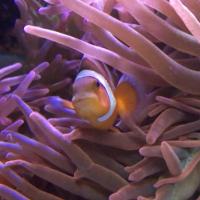
The fish killer and the fish live in perfect harmony: But how the clownfish thrives in the venomous tentacles of the anemone remains a mystery. A new study tackles the iconic conundrum from the microbial side by watching bacterial colonies shift…

Humans will soon embark on a detailed characterization of habitable planets beyond the solar system. Space-based telescopes probing the atmospheres of small planets around nearby stars will shortly be joined by ground-based observatories. What…
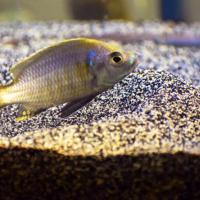
Do genes fire off signals to cause some behaviors? Science is getting closer to finding out. Researchers were able to directly match gene regulation with ritual mating behavior in fish. Their research field may give some insight into autism…
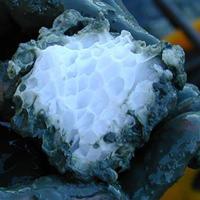
Methane clathrates, crystalline lockers for natural gas deposits deep under Earth's oceans, may also exist on icy moons of Saturn and Jupiter. An interdisciplinary team of Georgia Tech College of Sciences researchers will look into possible…
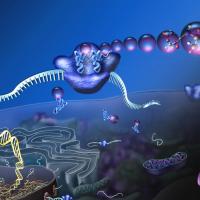
This experiment had a good chance of crashing. Instead, it delivered whopping evidence to collaborate the earliest evolution of the translational system, the mechanisms which make life out of our genes. The study swapped out all its…
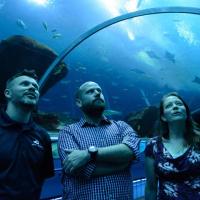
How natural can the seawater in a large inland aquarium be? New study at Georgia Aquarium gives scientists a good sign
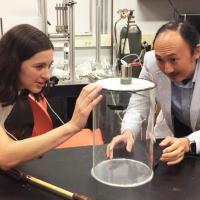
A new study shows how animals use their tails to keep mosquitoes at bay by combining a swish that blows away most of the biting bugs and a swat that kills the ones that get through.

Optical tweezers are one of two inventions that won the 2018 Nobel Prize in Physics.
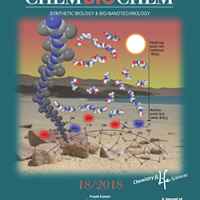
Work from the Center for Chemical Evolution suggests a mechanism by which organic compounds and silica, found in sand, could have produced long peptides in prebiotic Earth.
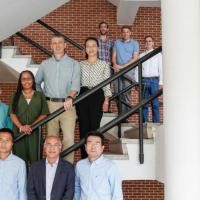
Data science researchers at Georgia Tech are partnering with minority-serving Atlanta colleges to train a diverse workforce for the data-driven future.

When Will Ratcliff and Peter Yunker first met for coffee they had no idea they would eventually collaborate on research that would be published in Nature Communications and Nature Physics.
Jenny McGuire, an assistant professor in the School of Earth and Atmospheric Sciences and the School of Biological Sciences, has a tough commute to her summer research site: an 80-foot drop into a deep, dark Wyoming cave. McGuire studies fossils…

Using a mathematical model, Georgia Tech biomathematician Howard “Howie” Weiss and Stockholm University microbiologist Klas Udekwu open a potential path to slowing microbial resistance to current antibiotics.
Using a mathematical…
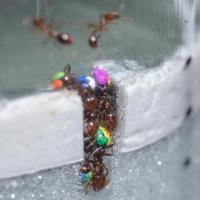
For ants and robots operating in confined spaces like tunnels, having more workers does not necessarily mean getting more work done. Just as too many cooks in a kitchen get in each other’s way, having too many robots in tunnels creates clogs that…

Brian Hammer and Joel Kostka, in the School of Biological Sciences, are among the most distinguished lecturers and researchers the American Society of Microbiology selected in 2018 to speak at various ASM branch meetings throughout the U.S.
A previously overlooked predator— a thumbnail-sized snail—could be increasing the pressure on coral reefs already weakened by the effects of overfishing, rising ocean temperatures, pollution and other threats.
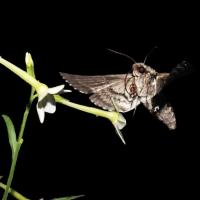
The Esther A. & Joseph Klingenstein Fund and the Simons Foundation have awarded Simon Sponberg a Klingenstein-Simons Fellowship Award in Neurosciences for a period of three years. The award will support Sponberg’s research,…
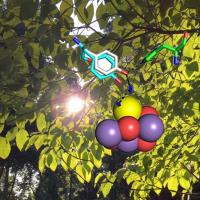
Oxygen photosynthesis has to be the greatest giver of life on Earth, and researchers have cracked yet another part of its complex but efficient chemistry. The more we know about it, the better we may be able to tweak photosynthesis, if it comes…
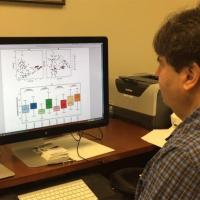
What does flying in a commercial airliner have in common with working at the office or relaxing at home? According to a new study, the answer is the microbiome – the community of bacteria found in homes, offices and aircraft cabins.

